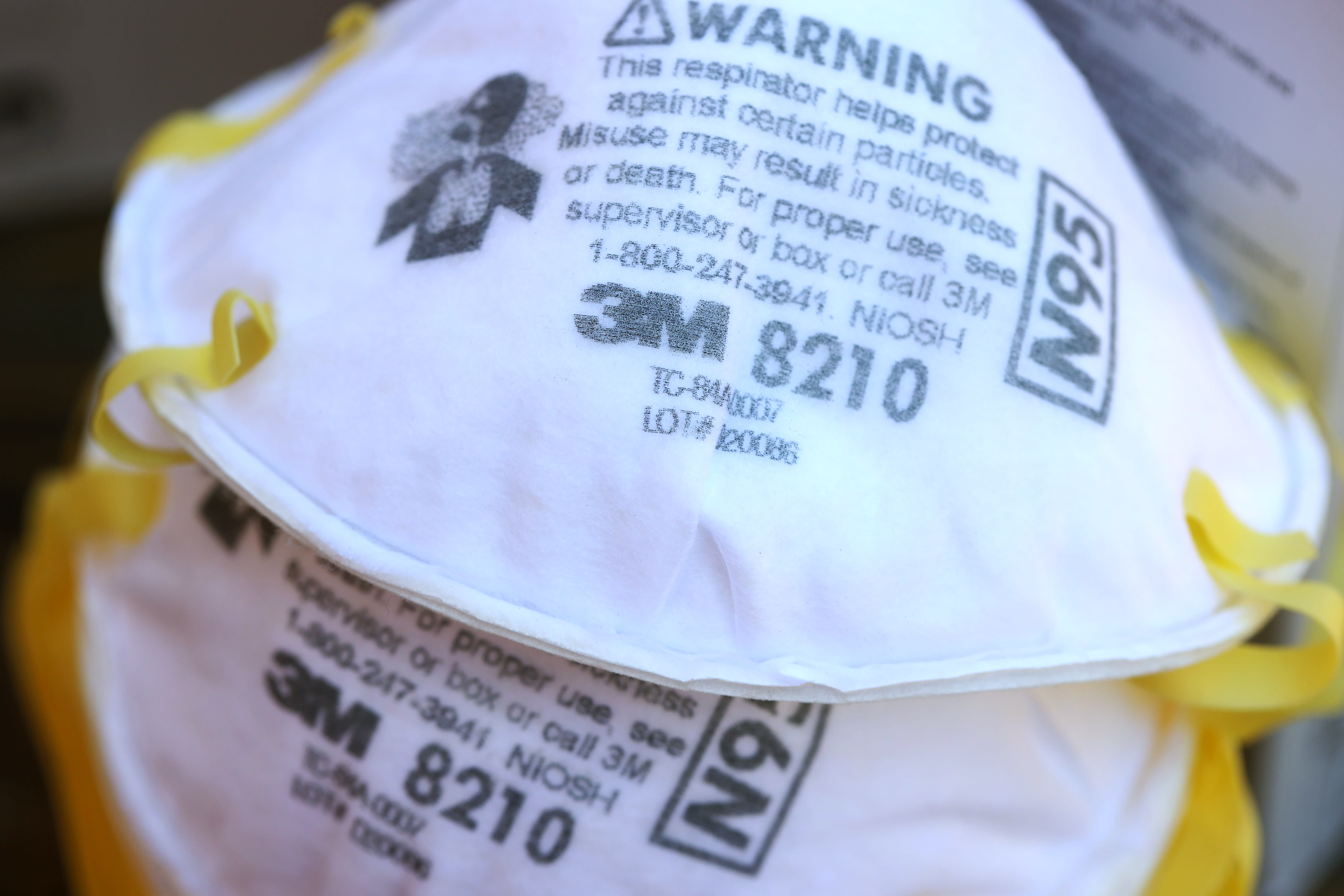
More than 11 million counterfeit 3M N95 masks have been seized by the Department of Homeland Security in recent weeks.
The recently confiscated masks were were headed for frontline healthcare workers who rely on N95 respirators to protect them from getting infected with and transmitting the coronavirus when interacting with Covid patients.
While the Centers for Disease Control still recommends reserving N95 masks for frontline healthcare workers and medical first responders, at this point, much of the general public are buying N95 masks for personal use. N95 masks create a seal that filters 95% of airborne particles when properly fitted.
With so many counterfeit N95 masks on the market, inadvertently using them could give healthcare workers and the public a dangerous false sense of security.
Here’s how to tell if your N95 respirator is fake:
Check the markings on the mask
The markings on the outside of an N95 respirator are key — a blank N95 is a red flag that it’s inauthentic. First, make sure that the mask has the “NIOSH” logo or acronym in block letters, which indicates that it’s been approved by National Institute for Occupational Safety and Health, according to the CDC. Check that NIOSH is spelled correctly.
N95 masks should have the “NIOSH” logo or acronym in block letters printed on the outside.
Bloomberg | Bloomberg | Getty Images
The brand manufacturer name (for example, 3M), registered trademark or clearly understood abbreviation should also be clearly printed on the mask. You can search the brand name on the CDC’s index to make sure that it is approved by NIOSH; in some cases, brands may misrepresent NIOSH approval.
The mask should also have a testing and certification code, which is “TC” followed by a numerical code. Other required numbers include the filter class (a letter: N, P or R) and efficiency (95, 99 or 100), for example, “N95.” There should be an alphanumerical model number printed on the mask, and it’s recommended that the mask also includes the lot number, though some masks may not.
Look at how it’s secured on your face
A healthcare worker wears a N95 respirator with two straps that fit around the head.
BRYAN R. SMITH | AFP | Getty Images




